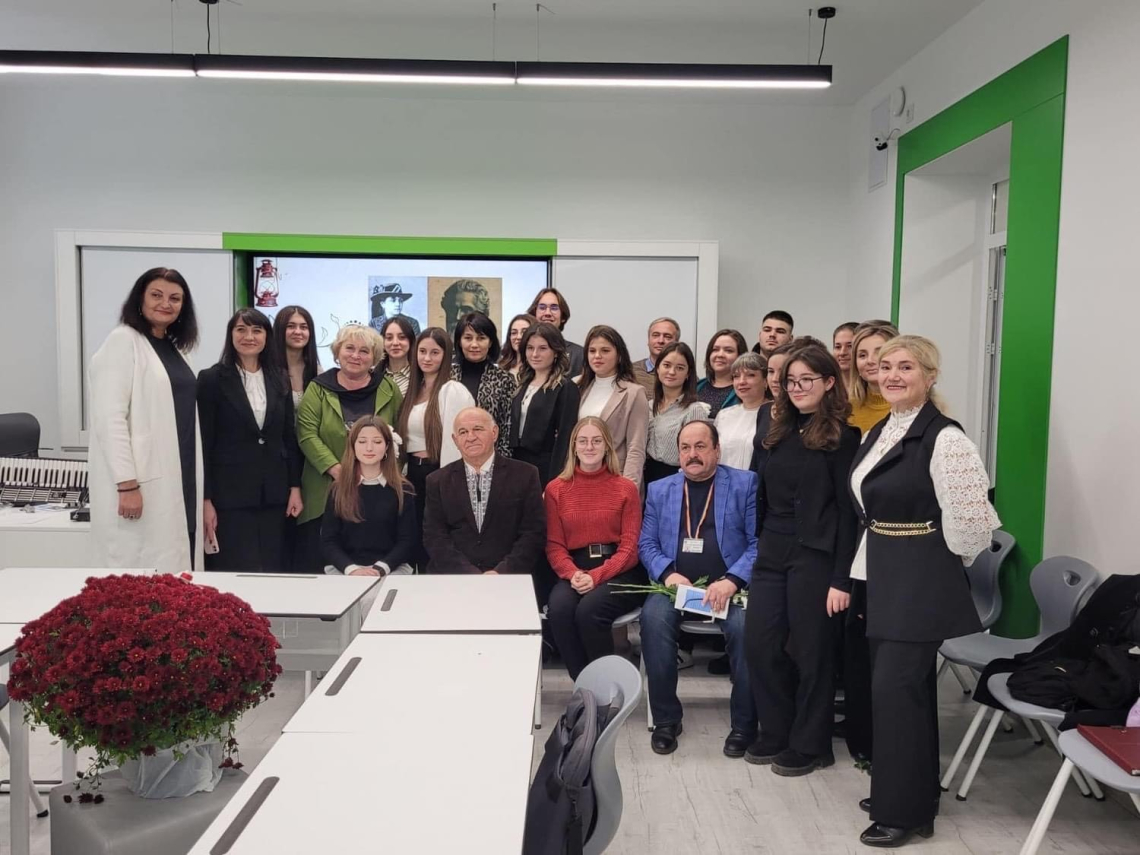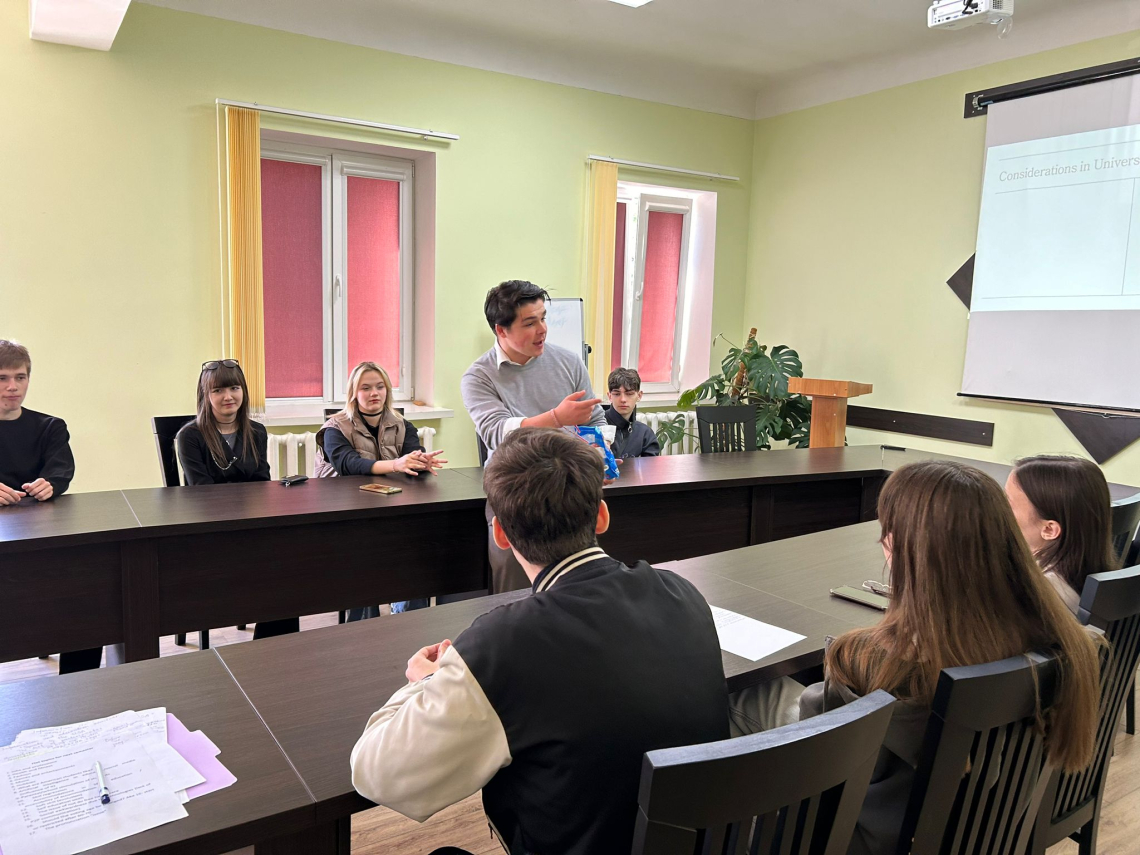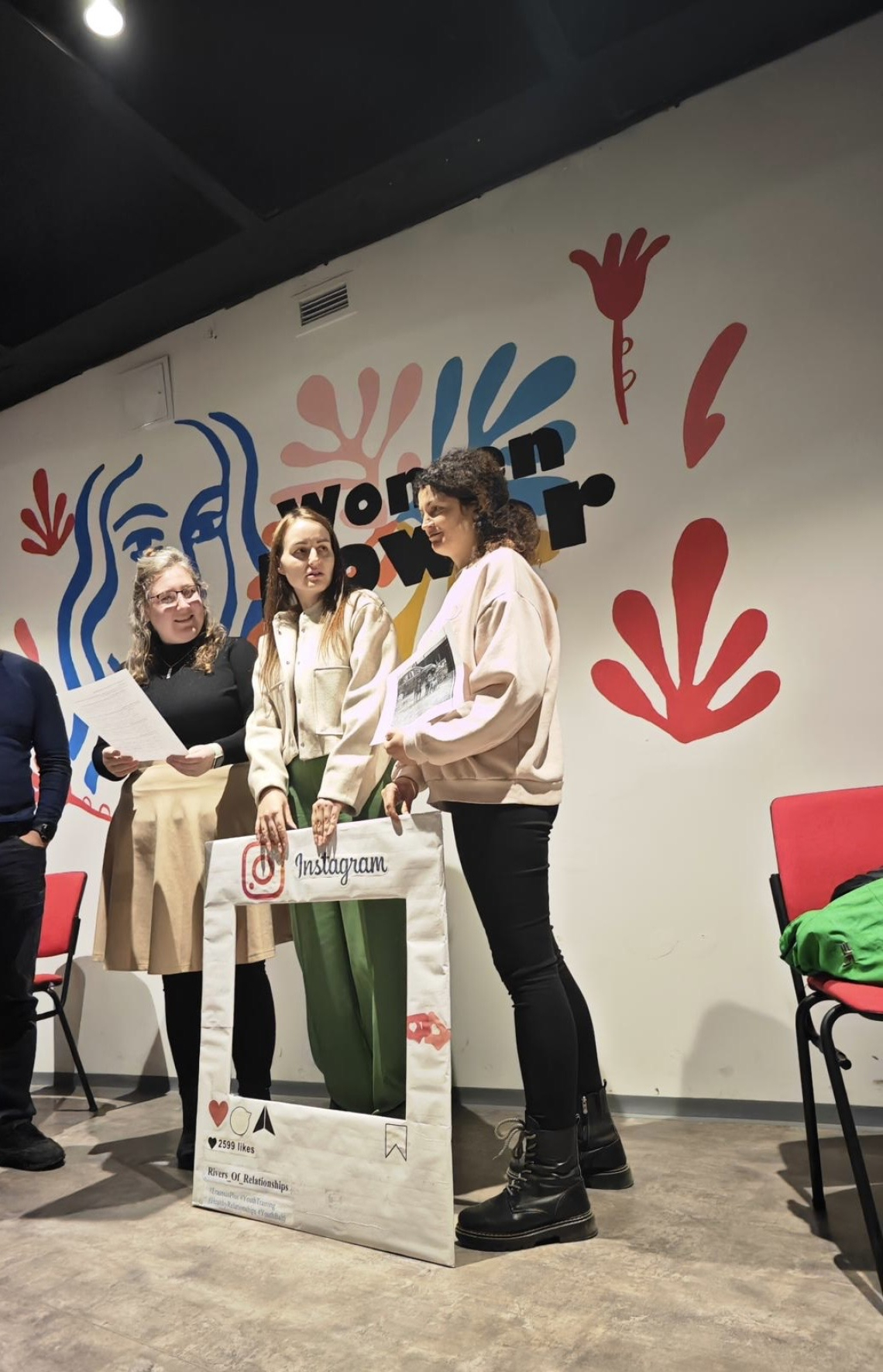Moldova
8 English Teaching Assistant Award
Accepted Degree Levels
|
Grant PeriodSeptember StartGrant Length9 Months |
Award Type
Award Profile
Grantees will teach English under the supervision of an experienced English instructor and will serve as a resource for conversation, vocabulary, and reading and writing courses. Grantees may also be involved in some educational advising and outreach.
In addition to teaching, grantees are encouraged to develop extracurricular projects at the university or for the local community.
Grant Length
Grant Period
Grants will begin in September 2026 and end in June 2027.
Orientation
All grantees are required to attend a pre-departure orientation in June or July as a condition of their grant. The virtual event is organized by IIE.
An in-country orientation will be held in the first week of September 2026.
Candidate Profile
Well-rounded, articulate candidates at all degree levels, with an interest in International Education and the initiative to teach conversational English at all levels, will be considered. Undergraduate degrees in Humanities and Social sciences, with a focus on English, American Studies, or Education, are preferred. Successful candidates will not just be teaching English, but serving as cultural ambassadors for the U.S. Previous teaching experience is not required, but helpful. Applicants must be fluent English speakers.
What is life like for Fulbrighters in the host country?
Applicants are expected to research their host country. Application materials should indicate a clear commitment to the host country community and a description of how you will engage with it.
Life as an ETA in Moldova is an opportunity to immerse into Moldovan culture, history, language, engage with the locals’ formulating connections, and to leave an impact and an impression in the classroom, outside the classroom, and with everyone you meet. For many Moldovans, this may be the first time they meet or interact with an American, and potentially the only time they will meet an American. Therefore, you’re an ambassador of American culture.
Peyton Pangburn, Fulbright ETA 2024 - 2025 – Agro-Industrial College in Ungheni, Moldova.
Moldova is a peripheral European country, and you will notice this aspect in two keyways. Firstly, the transportation is unlike most other European countries: it is a bit more irregular, informal, and limited. However, taxis are readily available, easy and inexpensive to book even for long trips, which can help supplement any public transportation gaps in your travels. Secondly, not all products are available all the time. Even in chain supermarkets like Linella, be prepared to not always be able to find things like milk, certain meats, bread, et cetera. This is in addition to the many foods and products you would normally buy in the U.S. or Europe which simply aren’t carried here. This is a normal aspect of traveling, but can be challenging to acclimate to, especially if you often cook for yourself. Plus, if you haven’t traveled before, get ready to go to multiple stores or markets for items you can often get all in one place in the U.S. Aside from these aspects, there are some other key aspects of life in Moldova regarding recreation. Aside from restaurants, there are often not a lot of indoor recreational options outside of the capital. For example, only Chisinau has a movie theatre, only Chisinau and Balti have performance halls, and only Chisinau seems to have genuine nightlife options. However, all of these things are of great quality in Chisinau, which I have found to be a lovely, entertaining, and safe capital city. In your host city, there will probably be a small museum, hiking or other outdoor attractions, parks, nearby wineries, restaurants & bars, and shopping (both markets and stores) to keep you entertained, but after several months–and especially in the winter–it can be difficult to find new and interesting things to do. The more local friends you have, the less this will be a problem. Moldova will probably not be anything that you expect. In my experience, many things here have far exceeded my expectations and their reputations. However, some things will be more challenging than you expect (non-potable drinking water in most places came as a bit of a shock for us) and might frustrate you. Overall, though, I have loved it here and consider Moldova a hidden gem, full of surprises, and, importantly, affordable.
Kyrsten Myrup, Fulbright ETA 2024 - 2025 – Mikhail Chakir College in Comrat
If Moldova is your first experience of Europe, be ready for it to be much more like a Third World country than the Western Europe you have seen portrayed in books and films. Flooding in the streets when it rains can be a real problem. Roads and sidewalks are poorly maintained. Restrooms are often quite rudimentary (always bring your own toilet tissue) and you can’t drink the tap water. The minibus transportation system from city to city can be a bit disorganized and confusing especially if you don’t have intermediate language skills in Russian (or Romanian). While Moldova, in general, is quite safe when it comes to crime on the streets, stray dogs—which can sometimes be aggressive—are omnipresent. (To that end, I would highly encourage you to get your rabies vaccine before coming for your own peace of mind and wellbeing should an emergency situation arise.) The winters can be very cold between poor insulation and very high heating costs. That being said, the local people adapt and so can you, and with your stipend as a Fulbright ETA (provided you keep to a budget), you will still be relatively insulated from the economic vicissitudes faced by many Moldovans. Chisinau, in particular, provides a wonderful opportunity to attend ballets, operas, and concerts of high quality at a fraction of the price you would expect elsewhere in Europe and the US. Some of my happiest moments in Moldova has been spent seeing my first ballets and operas live and getting to attend cultural performances of Gagauzian dance and local singing talent in Comrat. In short, while there may be practical aspects of day-to-day life that you won’t miss after your time in Moldova, living in Moldova does provide a once in a lifetime opportunity to develop as a human being--cultivating your cultural awareness and sensitivity in the light of complex political and historical realities and, of course, going to the opera.
Kiara Kolaczyk, Fulbright ETA 2023 - 2024 - Your ETA experience is what effort and engagement you create for yourself and the community. Within my two years as a Fulbright ETA, I have assisted with business development in Ungheni, instructed English and Entrepreneurship at Colegiul Agroindustrial, presented at universities and schools around the country, visited and helped at various local farms, lead programming at the American Corner and community organizations, and developed travel information for tourists to Moldova. My friendships and connections with the locals, attending cultural experiences, and watching students step out of their shell and exploring new career opportunities, has been my favorite parts of my time in Moldova. I will surely be back to visit Moldova numerous times in the future.
Sarah Hohman, Fulbright ETA 2023 - 2024 - I would say that life as an ETA in Moldova varies a lot based on where you are placed. It requires flexibility, adaptability, and the ability to balance your time and effort between teaching and community outreach. Being an ETA is also extremely rewarding, especially when you get to see your students developing a passion for English and American culture. I’ve gotten the chance to have so many unique opportunities and form lasting connections with locals and other expats while living in Moldova as an ETA.



Eligibility
Degree Level of Applicant
- Bachelor's
- Master's
Foreign Language Evaluation (FLE) Form
If required, submission of the Foreign Language Evaluation (FLE) form is mandatory, even if you have advanced skills or are a native speaker of the language. Failure to submit the required FLE form may impact your eligibility.
Additional Information: Some knowledge of Romanian or Russian is recommended, and preference may be given to candidates who have proficiency in one or both of these languages.
Foreign Language Proficiency Level by Grant Start
If a Foreign Language Evaluation (FLE) form is Required, applicants must have the following proficiency level by the start of the grant period. If a Foreign Language Evaluation (FLE) form is Recommended, applicants are encouraged but not required to have the following level by the start of the grant period.
Placement Type
- Secondary School
- University/Post-Secondary Institution
Affiliation is primarily at high schools, though some ETAs may additionally serve at universities. Placements are arranged at institutions outside of the capital city Chisinau. Grantees will teach under the supervision of a Moldovan English instructor and will serve as a resource for conversation, vocabulary, and reading and writing courses. Grantees may also be involved in some educational advising and outreach.
Placement Locations
- Regional City
Award Benefits
- A stipend broadly based on the cost of living in the host country. These funds may be used by the grantee to support housing, meals, and incidental costs during the grant period.
- International travel benefits
- Accident & sickness health benefits
- 24/7 mental health support line for urgent and non-urgent situations
- 12 months of non-competitive eligibility (NCE) hiring status within the federal government
- English language teaching preparatory course
Stipend Amount
This is an estimated amount and is subject to change. The financial terms of the grant will be confirmed in the grant document issued after selection.
One-Time Allowances
This is an estimated amount and is subject to change. The financial terms of the grant will be confirmed in the grant document issued after selection.
- Excess baggage fees
- Language training allowance
- Research/Materials allowance
- Settling in allowance
- Local transportation allowance
Additional Grant Benefits
- Diplomatic pouch
Fulbright ETAs are authorized to make a one-time shipment of educational materials to the American embassy or consulate in the country of assignment. This shipment must not exceed 6 cubic feet in volume. Six cubic feet is equal to 10,368 cubic inches and 1 cubic foot is equal to 1,728 cubic inches. To determine the volume of a box in cubic feet, multiply the width times the length times the depth (all in inches), and divide the sum by 1728. For example, a box that measures 24” X 24” X 18” has a volume of 6 cubic feet. If a shipment exceeds 6 cubic feet, the entire bulk shipment will be returned to sender. The tracking or registry numbers should be included on all parcels. These materials cannot be sent back to the United States by pouch.
Supplementary Project
Grantees are expected to engage in extra-curricular activities related to their personal, career, and/or educational interests. Projects can be clubs and activities directly at the host school, but wider activities involving local communities are encouraged. Applicants should include a brief description of their supplementary project in their Statement of Grant Purpose.
Estimated Cost of Living
Consider using cost of living comparison websites to gain a better understanding of the potential costs in your host country.
Depending on the placement the cost of living is different, but on average would be:
Accommodation one bedroom apartment:
400 - 200 EUR per month (depending on apartment living conditions and location)
Utilities: 250 EUR per month (in winter, due to high heating bills the estimate can increase)
Food and local transportation - 850 EUR
Total 1500 EUR= 1600 USD
Dependents
Housing Arrangements
Grantees are responsible for their own housing, though assistance will be provided by the host institution. It is advised to make short-term arrangements (1-2 weeks) and then, upon the arrival to the host city, arrange long-term housing.
Shared accommodation is not recommended.
Please be aware that apartments outside of the capital may be outdated and lacking in modern amenities such as elevators or air-conditioning. Internet is usually widely available.
Country Overview
Moldova, a small landlocked country bordering Ukraine and Romania, became an independent republic in 1991 after the Soviet Union's collapse. With a population of about 2.5 million, Moldova faces a declining population due to low birth rates and high external migration. The capital, Chisinau, has around 719,700 residents. The majority of the population speaks Romanian, with Russian and other languages also spoken. Moldova shares cultural and linguistic ties with Romania.
Since 1992, Moldova has had an autonomous region called Transnistria, a breakaway state under Russian control, primarily inhabited by Russian and Ukrainian speakers. The U.S. Embassy advises against travel to Transnistria without coordination for official purposes.
Moldova is one of Europe's poorest countries but is known for its hospitable people, rich culture, and wine industry. The economy relies heavily on agriculture and remittances from citizens working abroad. The education system includes preschool, primary, secondary, and higher education. The majority of Moldovan universities are in the capital, Chisinau, including Moldova State University, Technical University, Pedagogical University, Medical University, University of Arts and Academy of Economic Studies. There is also one state university in the northern city of Balti; one in Comrat, the capital of the Gagauz region; and another in Cahul, in the south of Moldova. The largest and oldest private university is Free Independent University of Moldova (ULIM) in Chisinau. The list of universities can be found on this link: https://mecc.gov.md/ro/content/institutiile-de-invatamant-superior.
English proficiency among urban youth is improving. While homosexuality is not illegal, the LGBT community faces opposition and discrimination. Safety concerns include street conditions, reckless drivers, petty crimes, and stray dogs. Limited English-speaking doctors are available, so grantees should bring necessary medications and consider private medical services.
A Fulbright placement in Moldova offers a unique opportunity to engage with a multi-ethnic republic with Romanian and Soviet heritage.
Fulbright Program Management Contact
Fulbright Commission/U.S. Embassy Website
Fulbright Commission/U.S. Embassy Contact
Fulbright Moldova: fulbright_moldova@state.gov
